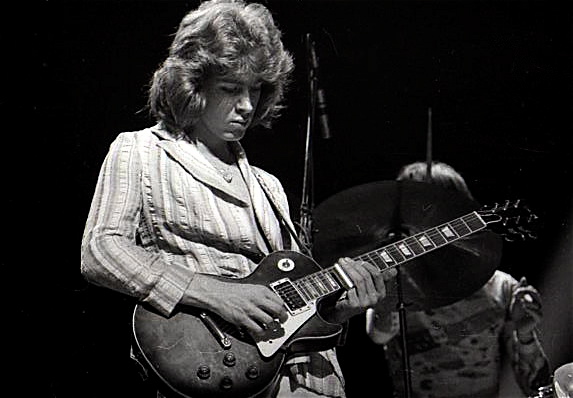Mick Taylor is a British musician, best known for being a guitarist for The Rolling Stones from 1969 to 1974. He joined the band as a replacement for founding member Brian Jones and played on several of the band’s most critically acclaimed and commercially successful albums, including “Let It Bleed”, “Sticky Fingers”, and “Exile on Main St.”
He is widely regarded as one of the greatest guitarists in rock history and his work with The Rolling Stones has been highly influential in the development of blues rock and hard rock. After leaving The Rolling Stones, he continued to play and record music as a solo artist and session musician.
Mick Taylor was a significant member of The Rolling Stones during his tenure with the band. His guitar playing was an integral part of the band’s sound and helped to shape the direction of their music. He was a key contributor to several of the band’s most critically acclaimed and commercially successful albums, including “Let It Bleed”, “Sticky Fingers”, and “Exile on Main St.” He was known for his virtuosic guitar playing, particularly his bluesy solos and his ability to play in a wide range of styles.
Additionally, his contribution to the band’s live performances was notable, as he was a skilled live performer. He also played a part in the band’s experimentation with different musical genres, like country, rock, and funk. His time with the band was relatively short, but his contributions were important to the band’s artistic development and commercial success.
Why did Mick Taylor quit The Rolling Stones?
Mick Taylor quit The Rolling Stones in 1974 due to a combination of creative differences and personal reasons. He has stated in interviews that he felt limited in his ability to express himself musically within the band and that he was not happy with the direction in which the band was heading.
He also had issues with the band’s heavy touring schedule and felt that he needed to take a break from the spotlight and focus on his own personal and musical growth. Additionally, there were reported tensions between him and other members of the band, specifically with frontman Mick Jagger, which led to his decision to leave
It is not entirely clear if there was a specific feud between Mick Taylor and Mick Jagger while they were both members of The Rolling Stones. However, Taylor has said in interviews that he and Jagger had creative differences and that their relationship was not always easy. Jagger, on the other hand, has said that he felt Taylor was not fully committed to the band and that he was not always easy to work with.
Taylor has also said that he felt Jagger was too controlling and that he was not given enough space to express himself musically within the band. Some reports also suggest that there were tensions between the two Micks over issues such as songwriting credits and the direction of the band’s music. Additionally, Taylor has said that he felt Jagger was not supportive of his decision to leave the band. However, in recent years both of them have shown mutual respect and admiration for each other’s work with The Rolling Stones.
What impact does the rolling stones have after Mick Taylor left?
The Rolling Stones continued to be one of the most successful and influential bands in the world after Mick Taylor left in 1974. The band continued to tour and release albums, and many of their subsequent albums have been critically acclaimed and commercially successful. However, Taylor’s departure did have an impact on the band’s sound and direction. His guitar playing was an integral part of the band’s sound during his tenure, and his departure led to a shift in the band’s style.
Ronnie Wood, who replaced Taylor, brought a different approach to the band’s guitar work and songwriting. Wood’s style was more rooted in rock and roll and R&B, as opposed to Taylor’s blues-oriented playing. After Taylor left, the band also started to incorporate more keyboards and electronic elements in their music.
The band also continued to experiment with different genres, like funk, disco, and reggae. While the band’s popularity and success did not wane after Taylor’s departure, many critics and fans consider the period of Taylor’s tenure as a peak in the band’s artistic development.

